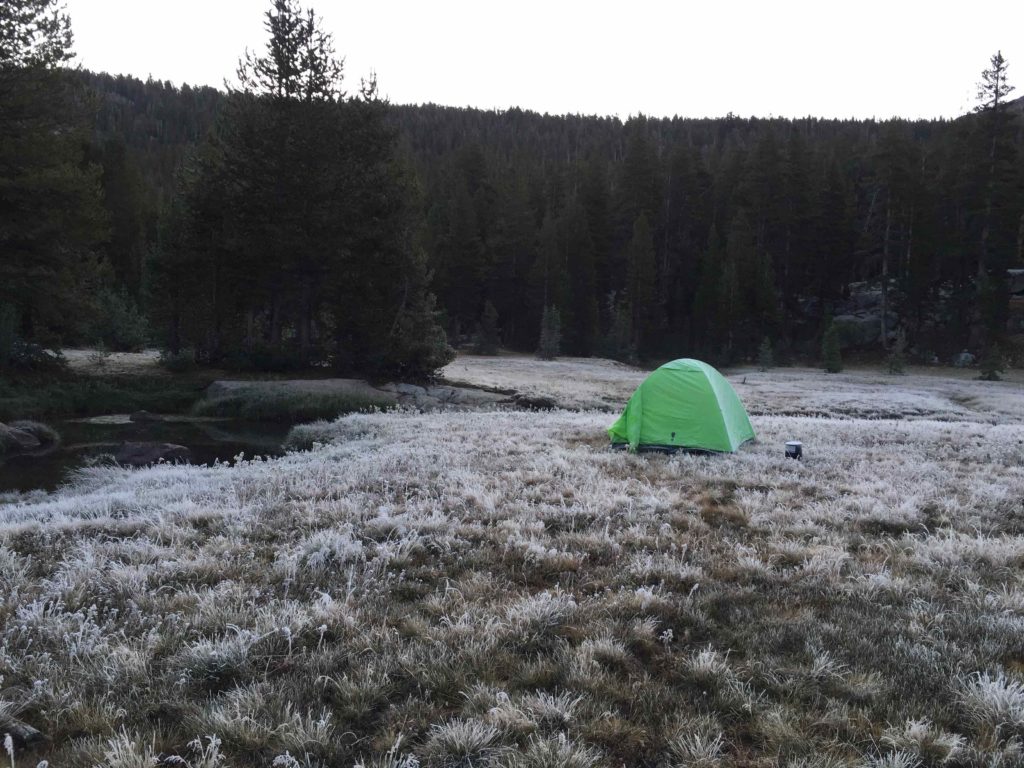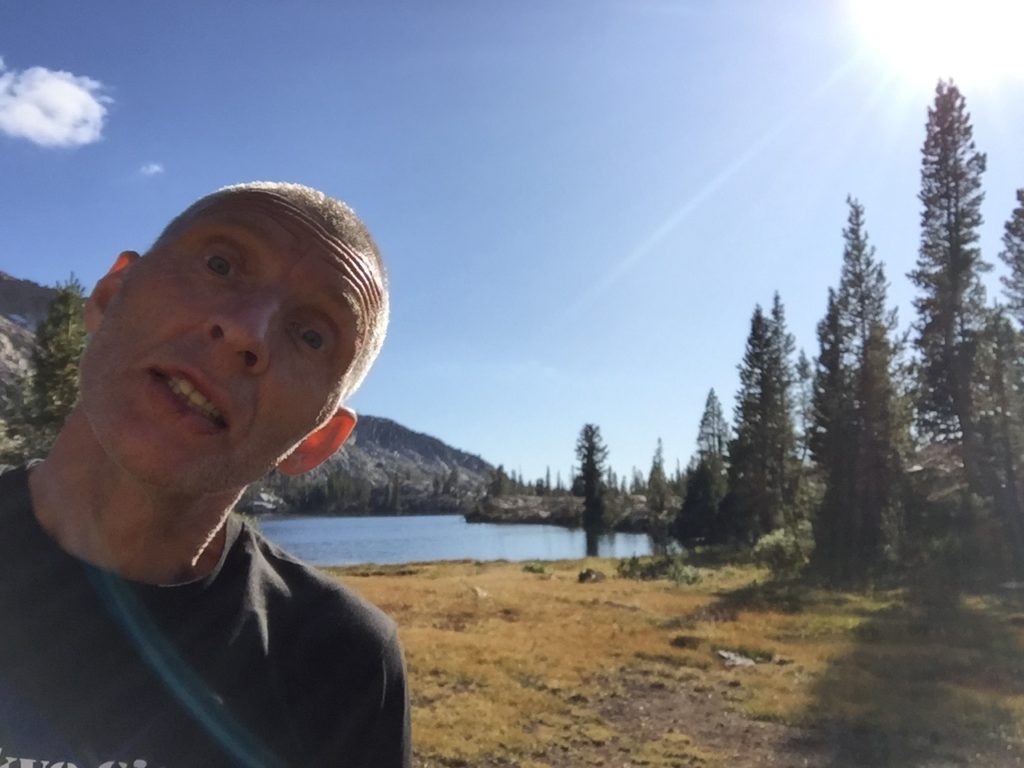A case for avoiding convenience and seeking challenges


In September 2019 I went on a strenuous hiking trip in Yosemite National Park. When I finally got back from the hike to have a hot tea, take a hot shower and sleep in a warm bed, it was an amazing feeling. Four days of strenuous exercise, feeling really cold at night and lacking all the comforts of everyday life, made me appreciate a bed and a hot drink as something incredibly special. And to this day I can still remember how I felt at that moment.
I am sure that many people can relate to my experience. However, when it comes to our everyday lives, we often do not realize and appreciate how fortunate we are.
Although going on an adventurous and minimalistic holiday is one way to appreciate things, it is not really necessary to go on a several day-long hiking trip. Based on my experience, taking up smaller challenges or making small sacrifices in our everyday lives (such as taking the stairs instead of the lift, opting for the healthier meal instead of the yummy burger, or taking a cold shower instead of warm one) can have a similar effect. And in addition to helping me appreciate what I otherwise would take for granted, choosing the less comfortable option has other advantages, for instance
Triggering the re-set button in our lives
I believe that for most people it is true that the older they get, the more convenient their lives become. The default mode for humans is to strive towards a more convenient life. Imagine we one day take the car or taxi because it is raining. We may realize that this is so convenient that we also take it the next day, even though it is not raining. And we find justifications for it, too, like we can save time to do important things. Before we know it, we have become dependent on the car or taxi. We are taking it for granted and get upset if for any reason we cannot take the car.
If we do not sometimes reset our daily habits, for instance by walking or taking the train, we are likely to add more and more convenient habits to our life, eventually ending up being so dependent on all the comforts and luxuries that the smallest mishap makes us upset. Skipping convenient habits can act like a reset button that allows us to again appreciate things that we have gotten used to.
Focussing on what is important for us and reducing stress
If we know that we can get by without things that most people normally need, it can help us to focus on what is important. I remember reading Gandhi’s autobiography as a student. Gandhi writes about how he lived while studying in London. His budget was extremely tight, and so he walked everywhere, cooked his own meals, cut his own hair. At the time I read the book I was spending the summer in Tokyo and started to walk everywhere, too. I walked every day, literally for hours. It saved me a lot of money, but it also had a liberating effect. I had very little to focus on, which allowed me to focus on what was important for me. It felt like a kind of meditation.
Based on my experience, giving up things that make our lives more “comfortable” also reduces stress. For instance, I used to have a car because I had to drive to my work place. When I changed my work and could walk to get to work, the car turned into a source of stress to me. I felt obliged to at least use it once per week so that it would not “rust”, even though I would have preferred walking. I remember my feeling of relief when I finally sold the car and had one thing less to worry about.
Like Gandhi used to do, I also do cut my own hair, very short. I remember how anxious I used to be in my younger years when I went to the barber shop, worrying about how my haircut would turn out. Cutting my hair short has eliminated this stress. When I watch guys in front of the mirror rectifying and styling their hair, I feel a sense of liberation, because this is something I no longer have to worry about.
Finally, the best example of a convenient habit is the smart phone, which supposedly has made our lives much easier and which seems essential in our daily life. However, in essence, a smart phone is just an all-in-one device for things that in the past people used different tools for (newspapers to read the news; game consoles to play games, cd players or iPods to listen to music, etc.). With a smart phone we have the choice to do anything at any time. It seems easier to use a one-in-all device, but having the chance to make spontaneous choices often results in us making the wrong choices. To avoid this, I almost never use mine, unless I have to. Stopping to constantly use the smart phone can be a great productivity booster and help us to live and be present.
My experiences led me to believe that the best way to secure a happy future as I get older is not to accumulate a lot of money, but to find ways to depend on less things including needing less comforts, less luxuries and less money. I admit, however, that this is a not an easy task.
Taking sacrifices helps us to appreciate more.
I already talked about this point above when I discussed my hiking trip. But it also applies to small things. Nothing beats enjoying some fun activity after a productive and meaningful day. It feels good and there is no feeling of guilt.
Another great example for me is listening to music. I could always listen to my favorite music, but it would soon stop being special. Some of my favorite music I have not listened to in years. But I know if I do listen to it, it will still feel very special and bring back all those memories.
Dropping convenient habits and taking up challenges can also have various other pay-offs. For instance, it can save us money. Sadly, it can sometimes also cost more money. My favorite example is if we decide to eat less unhealthy and more healthy food, we realize that healthy meals and ingredients tend to be quite expensive. I always wish that governments would subside healthy choices (and not just label them).
Finally, dropping convenient habits makes us realize which things we don’t actually need.
I am always amazed how prone I am to false beliefs. I think that I need a lot of things, but when I don’t have them, I quickly get used to it most of the time. I realize that I can accommodate and get by without these things just fine. In fact, I am often happier without them. I guess the reason why we hold on to what we are used to is that we cannot imagine what it would be like giving up something. Hence, we usually only give up things if we are forced to do it.
On the other hand, giving up things voluntarily is difficult. Taking cold showers because the water heater is broken is easy, but deciding to do it intentionally is hard. Stopping to buy things is easy if we are broke, but hard if it is our hobby (or addiction) and we have money to spend.
However, it is still possible to give up things without being forced to, but there is no patent solution. We have to find our own way of achieving this, and I find that the internet is a great source for information and inspiration.
In conclusion, making small sacrifices, dropping convenient habits and taking up challenges helps us to enjoy life more. It does require continuous effort, though, because after some time we tend to bounce back into the luxury and convenience mode.
However, although trying to be disciplined is good, we should also remember that nobody is 100% of the time the ideal person. And it is perfectly normal and ok to sometimes make exceptions and enjoy and appreciate things that we long for. But to keep these things special, they should be the exception rather than the rule.
Taking the more difficult path in life may seem counterintuitive, but based on my own experience it is the key to happiness. My happiest days are those when I overcome my inherent inertia and default drive to take it easy and relax and instead go out and do things.

My hiking trip in Yosemite National Park – cold and tiring

My hiking trip in Yosemite National Park – cold and tiring